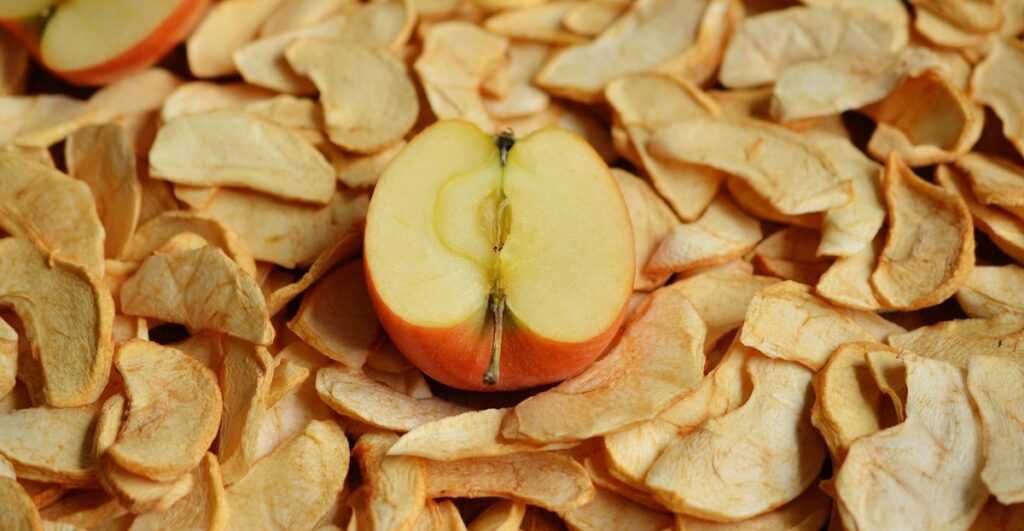Dried Fruits are nature’s nutrient-packed snacks, offering a concentrated dose of vitamins, minerals, and fiber without the added weight of water. From apricots to raisins, these tiny powerhouses provide a convenient way to boost your diet with antioxidants, iron, potassium, and more. Scientific studies reveal that regular consumption of dried fruits can enhance digestive health, improve bone density, and support heart health due to their rich fiber and polyphenol content. For instance, a study published in the Journal of the American College of Nutrition found that dried fruit consumers have a higher intake of essential nutrients and lower body weight. However, choosing unsweetened and sulfate-free options is crucial to maximizing benefits. Whether you’re seeking a healthy snack or a way to enrich your meals, understanding the real benefits of dried fruits can transform your diet. Keep reading to discover why dried fruits deserve a place in your daily routine.
Nutrient Density: Why Dried Fruits Are a Powerhouse of Vitamins and Minerals
• Dried fruits contain concentrated levels of vitamins such as A, C, K, and essential minerals like potassium, iron, and magnesium.
• The dehydration process retains most nutrients, making dried fruits a compact source of health benefits.
• Studies by Food Chemistry journal confirm that dried fruits maintain high antioxidant levels, combating free radicals and supporting cellular health.
• Raisins, apricots, and figs are especially rich in iron, supporting oxygen transport and preventing anemia.
Fiber Benefits: Supporting Digestive Health with Dried Fruits
Dried fruits, especially Dried Fruits, are high in both soluble and insoluble fibers, aiding in digestive health and preventing constipation. Prunes, in particular, contain sorbitol, a natural laxative that promotes bowel movements. A 2022 study in the British Journal of Nutrition highlighted that regular prune consumption significantly improves stool frequency and consistency. Fiber also acts as a prebiotic, nourishing beneficial gut bacteria for enhanced immunity and digestion.
Blood Sugar Management: How Dried Fruits Impact Glycemic Control
• Despite natural sugars, dried fruits have a moderate glycemic index, especially when paired with nuts or yogurt.
• Dates and figs, rich in soluble fiber, slow down sugar absorption, preventing spikes in blood glucose levels.
• A study by Diabetes Care journal found that moderate consumption of dried fruits did not significantly impact blood sugar levels in type 2 diabetics.
• Choosing unsweetened dried fruits ensures better glycemic control and prevents unnecessary sugar intake.

Antioxidants and Anti-inflammatory Properties in Dried Fruits
• Dried fruits like cranberries, apricots, and raisins are rich in polyphenols, antioxidants that fight inflammation and oxidative stress.
• Antioxidants reduce the risk of chronic diseases such as heart disease and cancer by neutralizing free radicals.
• Research from the Journal of Agricultural and Food Chemistry confirms that dried fruits retain 70-80% of their antioxidant properties post-dehydration.
• Regular consumption helps reduce markers of inflammation, promoting longevity and vitality.
Weight Management: Can Dried Fruits Help You Lose Weight?
• Dried fruits are energy-dense but can aid in weight management when consumed in controlled portions.
• Fiber promotes a feeling of fullness, reducing overall calorie intake and preventing overeating.
• A study by Nutrients journal in 2021 found that individuals who included dried fruits in their diet had a lower BMI and healthier waist-to-hip ratios.
• Choosing portion-controlled packs and avoiding added sugars maximizes the weight management benefits of dried fruits.
Bone Health: Essential Minerals in Dried Fruits for Stronger Bones
• Dried fruits like figs, apricots, and prunes are excellent sources of calcium, magnesium, and potassium, essential minerals for bone health.
• Prunes, in particular, have been shown to reduce bone loss due to their high boron and vitamin K content, which support calcium retention.
• A 2022 study published in the Osteoporosis International journal found that consuming prunes daily improved bone mineral density in postmenopausal women.
• Including dried fruits in your diet can help prevent osteoporosis and strengthen bone structure, especially for older adults.
Cardiovascular Health: How Dried Fruits Support a Healthy Heart
• Dried fruits such as raisins and apricots are high in potassium, a mineral that helps regulate blood pressure and prevent hypertension.
• The fiber and antioxidants in dried fruits lower LDL cholesterol and reduce plaque buildup in arteries.
• A study in the American Journal of Clinical Nutrition indicated that individuals who ate dried fruits regularly had a 22% lower risk of heart disease.
• Incorporating dried fruits into daily meals can improve cardiovascular health and reduce the risk of heart attacks and strokes.
Immune System Support: Vitamins and Antioxidants in Dried Fruits
• Dried fruits are rich in immune-boosting vitamins like A, C, and E, which support white blood cell production and enhance immune responses.
• Antioxidants such as flavonoids and polyphenols in dried fruits neutralize free radicals, reducing inflammation and the risk of infections.
• A 2023 study from Nutrients journal showed that dried apricots and prunes significantly increased antioxidant levels in participants, strengthening their immune systems.
• Regular consumption of dried fruits helps maintain a robust immune system, especially during flu seasons.
Eye Health: Protecting Vision with Dried Fruits
• Dried fruits like apricots, mangoes, and raisins contain beta-carotene, which converts into vitamin A, essential for maintaining good vision.
• Vitamin A prevents night blindness and supports the function of the retina and cornea.
• A study by the American Academy of Ophthalmology highlighted that diets rich in beta-carotene can reduce the risk of age-related macular degeneration by 25%.
• Including dried fruits in your diet is a simple way to protect and enhance eye health.

Mental Health Benefits: How Dried Fruits Can Boost Brain Function
• Dried fruits are rich in antioxidants and essential fatty acids that protect brain cells from oxidative stress and improve cognitive function.
• Polyphenols found in raisins and prunes enhance memory and learning by reducing inflammation and supporting neural pathways.
• A study published in the Journal of Nutrition, Health & Aging showed that dried fruit consumers had better cognitive performance and memory retention.
• Regular consumption of dried fruits can support mental clarity and reduce the risk of neurodegenerative diseases like Alzheimer’s.
Natural Energy Boost: Dried Fruits as Pre-Workout Snacks
• Dried fruits like dates and raisins are high in natural sugars and carbohydrates, providing an instant energy boost before workouts.
• The potassium in dried fruits helps prevent muscle cramps and supports electrolyte balance during exercise.
• A study in the Journal of the International Society of Sports Nutrition found that athletes who consumed dried fruits had better endurance and energy levels.
• Snacking on dried fruits pre-workout is a healthy way to enhance performance and sustain energy.
Choosing the Right Dried Fruits: Tips for Maximizing Health Benefits
• Opt for unsweetened and sulfate-free dried fruits to avoid added sugars and preservatives that can negate health benefits.
• Read labels carefully to ensure no added oils or artificial flavors are present.
• A guide by the USDA recommends limiting dried fruit intake to one small handful per day due to their concentrated sugar content.
• Prioritizing organic dried fruits can minimize pesticide exposure and maximize nutrient intake.
Practical Ways to Include Dried Fruits in Your Diet
• Add dried fruits to oatmeal, yogurt, and salads for a nutrient boost and natural sweetness.
• Create homemade trail mixes with nuts and seeds for a balanced snack rich in protein, fiber, and healthy fats.
• Use chopped dried fruits in baking recipes like muffins, bread, and granola bars for added flavor and nutrition.
• Rehydrate dried fruits by soaking them in water or juice overnight to use in smoothies and desserts.
The Benefits of Dried Fruits
Dried Fruits offer a convenient and nutrient-dense way to enhance your diet. Packed with essential vitamins, minerals, and antioxidants, they support digestive health, strengthen bones, and improve cardiovascular function. The high fiber content in dried fruits promotes satiety, making them an excellent choice for weight management. According to a 2023 study by Harvard T.H. Chan School of Public Health, individuals who consumed dried fruits regularly showed a 24% lower risk of heart disease compared to those who did not. Additionally, the antioxidants in dried fruits combat inflammation and oxidative stress, contributing to overall well-being. However, it’s essential to select unsweetened, additive-free options to avoid excess sugar and preservatives. Incorporating dried fruits into your diet through snacks, salads, or breakfast bowls is an easy way to harness their benefits. By making smart choices, you can enjoy the rich flavors and health advantages of dried fruits. Embrace these natural powerhouses for a healthier lifestyle!




